Organic soap dye has become increasingly popular in recent years as people are becoming more aware of the importance of using natural, non-toxic ingredients in their skincare products. With concerns about the potential harmful effects of synthetic dyes and chemicals, many consumers are turning to organic soap dye as a safer and more sustainable alternative. In this article, we will explore the benefits of organic soap dye, discuss different types of natural dyes, and provide tips on how to incorporate organic soap dye into your skincare routine. One of the main advantages of organic soap dye is that it is made from natural ingredients that are free from harmful chemicals and toxins. Many conventional soap dyes contain synthetic colorants that can cause skin irritation and allergic reactions. By using organic soap dye, you can avoid these potential risks and enjoy a gentler and more nourishing product for your skin. Organic soap dye is often made from plant-based ingredients such as fruits, vegetables, and herbs. These natural sources provide a wide range of vibrant and beautiful colors that can be used to create unique and eye-catching soap designs. From deep reds and purples to bright yellows and greens, organic soap dye offers a rainbow of possibilities for creating stunning handmade soaps. In addition to being safer for your skin, organic soap dye is also better for the environment.
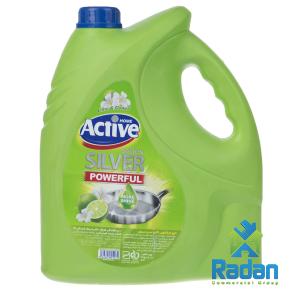
.
 Many synthetic dyes used in conventional soap products are derived from petrochemicals, which can have a negative impact on the environment during production and disposal. Organic soap dye, on the other hand, is biodegradable and sustainable, making it a more eco-friendly choice for environmentally conscious consumers. When choosing organic soap dye for your handmade soaps, it’s important to select high-quality products that are free from artificial additives and preservatives. Look for organic soap dye that is certified by reputable organizations such as the USDA Organic or Ecocert, which ensure that the ingredients used are organic and sustainably sourced. There are several different types of natural dyes that can be used to color organic soap, each offering its own unique properties and benefits. Some popular natural dyes for soap making include: 1. Beetroot Powder: Beetroot powder is derived from dried beetroots and produces a vibrant pink to red color in soap. It is rich in antioxidants and vitamins, making it a great choice for nourishing the skin. 2. Spirulina Powder: Spirulina powder is a blue-green algae that creates a deep blue color in soap. It is known for its detoxifying properties and high nutrient content, making it a popular choice for natural skincare products. 3. Turmeric Powder: Turmeric powder is a bright yellow spice that is often used in soap making for its anti-inflammatory and antibacterial properties. It adds a warm golden hue to soaps and can help promote healthy, glowing skin. 4. Indigo Powder: Indigo powder is derived from the leaves of the indigo plant and produces a deep blue color in soap. It is a natural dye that has been used for centuries for its rich color and skin-soothing properties.
Many synthetic dyes used in conventional soap products are derived from petrochemicals, which can have a negative impact on the environment during production and disposal. Organic soap dye, on the other hand, is biodegradable and sustainable, making it a more eco-friendly choice for environmentally conscious consumers. When choosing organic soap dye for your handmade soaps, it’s important to select high-quality products that are free from artificial additives and preservatives. Look for organic soap dye that is certified by reputable organizations such as the USDA Organic or Ecocert, which ensure that the ingredients used are organic and sustainably sourced. There are several different types of natural dyes that can be used to color organic soap, each offering its own unique properties and benefits. Some popular natural dyes for soap making include: 1. Beetroot Powder: Beetroot powder is derived from dried beetroots and produces a vibrant pink to red color in soap. It is rich in antioxidants and vitamins, making it a great choice for nourishing the skin. 2. Spirulina Powder: Spirulina powder is a blue-green algae that creates a deep blue color in soap. It is known for its detoxifying properties and high nutrient content, making it a popular choice for natural skincare products. 3. Turmeric Powder: Turmeric powder is a bright yellow spice that is often used in soap making for its anti-inflammatory and antibacterial properties. It adds a warm golden hue to soaps and can help promote healthy, glowing skin. 4. Indigo Powder: Indigo powder is derived from the leaves of the indigo plant and produces a deep blue color in soap. It is a natural dye that has been used for centuries for its rich color and skin-soothing properties.
..
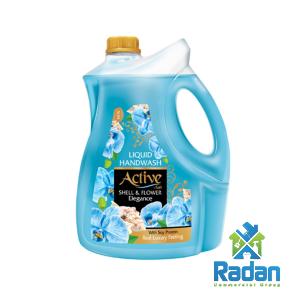 5. Alkanet Root Powder: Alkanet root powder is a natural dye that creates a deep purple color in soap. It is known for its astringent and anti-inflammatory properties, making it a popular choice for sensitive skin. Incorporating organic soap dye into your skincare routine is easy and fun. You can experiment with different natural dyes to create custom colors and designs for your handmade soaps. Whether you prefer bright and bold hues or soft and subtle tones, organic soap dye offers a wide range of options for creating personalized and luxurious soap products. When using organic soap dye in your soap making process, it’s important to follow best practices to ensure the best results. Be sure to measure your dye carefully to achieve the desired color intensity and mix it thoroughly into your soap base before pouring it into your molds. You can also combine different natural dyes to create custom color blends and effects for your soaps. In conclusion, organic soap dye is a safe, natural, and sustainable alternative to synthetic dyes that offers a wide range of benefits for your skin and the environment. By using organic soap dye in your handmade soap products, you can create beautiful, colorful designs while also supporting your skin’s health and well-being. Try experimenting with different natural dyes and techniques to discover the endless possibilities of organic soap dye in your skincare routine. Organic soap dye offers a multitude of benefits beyond just adding color to your soap. The natural ingredients used in organic soap dyes can provide additional skincare benefits that can enhance the overall quality of your handmade soap products. For example, ingredients like beetroot powder, spirulina powder, turmeric powder, indigo powder, and alkanet root powder all have unique properties that can nourish and protect the skin. Beetroot powder is rich in antioxidants that help fight free radicals, which can cause premature aging of the skin. It also contains vitamins and minerals that can help nourish the skin and promote a healthy, glowing complexion. When used as a soap dye, beetroot powder can add a beautiful pink to red color to your soaps while providing these beneficial properties to your skin. Spirulina powder is known for its detoxifying properties and high levels of nutrients like protein, vitamins, and minerals. When used in soap making, spirulina powder can help purify the skin and promote a clear, healthy complexion. Its deep blue-green color can also create stunning visual effects in your handmade soaps.
5. Alkanet Root Powder: Alkanet root powder is a natural dye that creates a deep purple color in soap. It is known for its astringent and anti-inflammatory properties, making it a popular choice for sensitive skin. Incorporating organic soap dye into your skincare routine is easy and fun. You can experiment with different natural dyes to create custom colors and designs for your handmade soaps. Whether you prefer bright and bold hues or soft and subtle tones, organic soap dye offers a wide range of options for creating personalized and luxurious soap products. When using organic soap dye in your soap making process, it’s important to follow best practices to ensure the best results. Be sure to measure your dye carefully to achieve the desired color intensity and mix it thoroughly into your soap base before pouring it into your molds. You can also combine different natural dyes to create custom color blends and effects for your soaps. In conclusion, organic soap dye is a safe, natural, and sustainable alternative to synthetic dyes that offers a wide range of benefits for your skin and the environment. By using organic soap dye in your handmade soap products, you can create beautiful, colorful designs while also supporting your skin’s health and well-being. Try experimenting with different natural dyes and techniques to discover the endless possibilities of organic soap dye in your skincare routine. Organic soap dye offers a multitude of benefits beyond just adding color to your soap. The natural ingredients used in organic soap dyes can provide additional skincare benefits that can enhance the overall quality of your handmade soap products. For example, ingredients like beetroot powder, spirulina powder, turmeric powder, indigo powder, and alkanet root powder all have unique properties that can nourish and protect the skin. Beetroot powder is rich in antioxidants that help fight free radicals, which can cause premature aging of the skin. It also contains vitamins and minerals that can help nourish the skin and promote a healthy, glowing complexion. When used as a soap dye, beetroot powder can add a beautiful pink to red color to your soaps while providing these beneficial properties to your skin. Spirulina powder is known for its detoxifying properties and high levels of nutrients like protein, vitamins, and minerals. When used in soap making, spirulina powder can help purify the skin and promote a clear, healthy complexion. Its deep blue-green color can also create stunning visual effects in your handmade soaps.
…
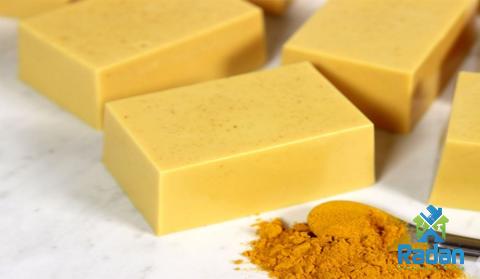 Turmeric powder is a powerful anti-inflammatory and antibacterial ingredient that can help soothe and heal the skin. It is often used in skincare products to reduce redness, fight acne, and improve skin tone. In soap making, turmeric powder adds a warm yellow hue to your soaps while providing these beneficial skincare properties. Indigo powder has been used for centuries for its vibrant blue color and skin-soothing properties. It can help calm irritated skin, reduce inflammation, and promote overall skin health. Incorporating indigo powder into your handmade soaps can create beautiful blue shades while benefiting your skin at the same time. Alkanet root powder is known for its astringent and anti-inflammatory properties, making it a great choice for sensitive or irritated skin. It can help soothe skin conditions like eczema and psoriasis while adding a deep purple color to your soap creations. In addition to these specific benefits, organic soap dyes in general are free from synthetic chemicals and preservatives that can be harsh and irritating to the skin. By using natural dyes in your handmade soaps, you can create gentle and nourishing products that are suitable for all skin types, including sensitive skin. When shopping for organic soap dyes, look for products that are made with high-quality natural ingredients and are free from synthetic additives. Many reputable suppliers offer a wide range of organic soap dyes in various colors and forms, such as powders, liquids, or extracts. Experimenting with different types of natural dyes can help you discover new color combinations and effects for your soap creations. Overall, organic soap dye is a versatile and beneficial ingredient that can elevate your handmade soap products to new heights. Whether you are a seasoned soap maker or a beginner looking to explore the world of natural skincare, incorporating organic soap dye into your creations can bring a whole new level of creativity and sustainability to your craft. In conclusion, organic soap dye is a safe, natural, and sustainable alternative to synthetic dyes that offers a plethora of benefits for your skin and the environment. By using organic soap dye in your handmade soap products, you can create beautiful, colorful designs while also supporting your skin’s health and well-being. Experiment with different natural dyes, techniques, and ingredients to unlock the full potential of organic soap dye in your skincare routine.
Turmeric powder is a powerful anti-inflammatory and antibacterial ingredient that can help soothe and heal the skin. It is often used in skincare products to reduce redness, fight acne, and improve skin tone. In soap making, turmeric powder adds a warm yellow hue to your soaps while providing these beneficial skincare properties. Indigo powder has been used for centuries for its vibrant blue color and skin-soothing properties. It can help calm irritated skin, reduce inflammation, and promote overall skin health. Incorporating indigo powder into your handmade soaps can create beautiful blue shades while benefiting your skin at the same time. Alkanet root powder is known for its astringent and anti-inflammatory properties, making it a great choice for sensitive or irritated skin. It can help soothe skin conditions like eczema and psoriasis while adding a deep purple color to your soap creations. In addition to these specific benefits, organic soap dyes in general are free from synthetic chemicals and preservatives that can be harsh and irritating to the skin. By using natural dyes in your handmade soaps, you can create gentle and nourishing products that are suitable for all skin types, including sensitive skin. When shopping for organic soap dyes, look for products that are made with high-quality natural ingredients and are free from synthetic additives. Many reputable suppliers offer a wide range of organic soap dyes in various colors and forms, such as powders, liquids, or extracts. Experimenting with different types of natural dyes can help you discover new color combinations and effects for your soap creations. Overall, organic soap dye is a versatile and beneficial ingredient that can elevate your handmade soap products to new heights. Whether you are a seasoned soap maker or a beginner looking to explore the world of natural skincare, incorporating organic soap dye into your creations can bring a whole new level of creativity and sustainability to your craft. In conclusion, organic soap dye is a safe, natural, and sustainable alternative to synthetic dyes that offers a plethora of benefits for your skin and the environment. By using organic soap dye in your handmade soap products, you can create beautiful, colorful designs while also supporting your skin’s health and well-being. Experiment with different natural dyes, techniques, and ingredients to unlock the full potential of organic soap dye in your skincare routine.
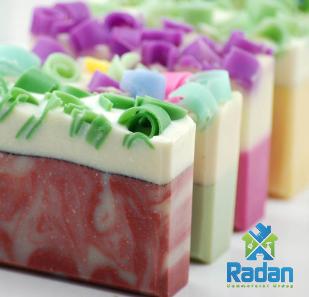
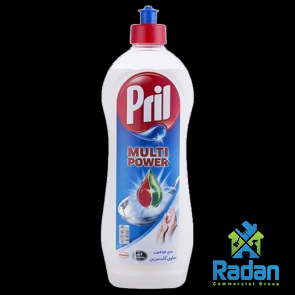
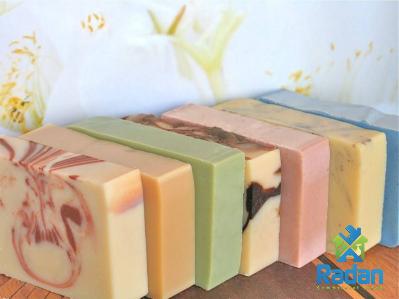
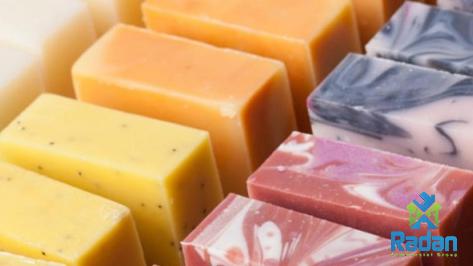
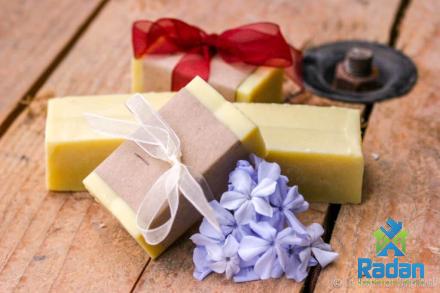
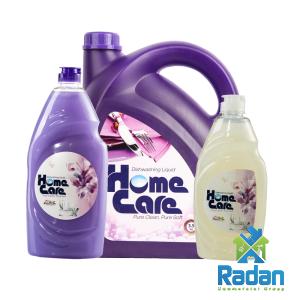
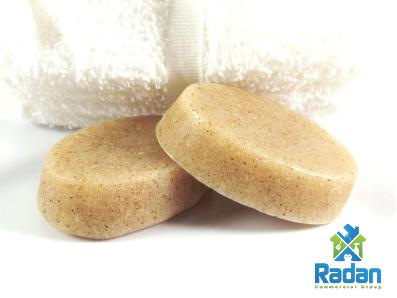
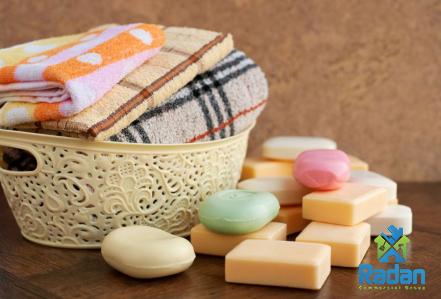
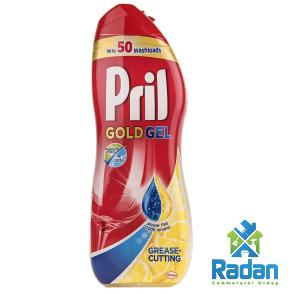

Your comment submitted.